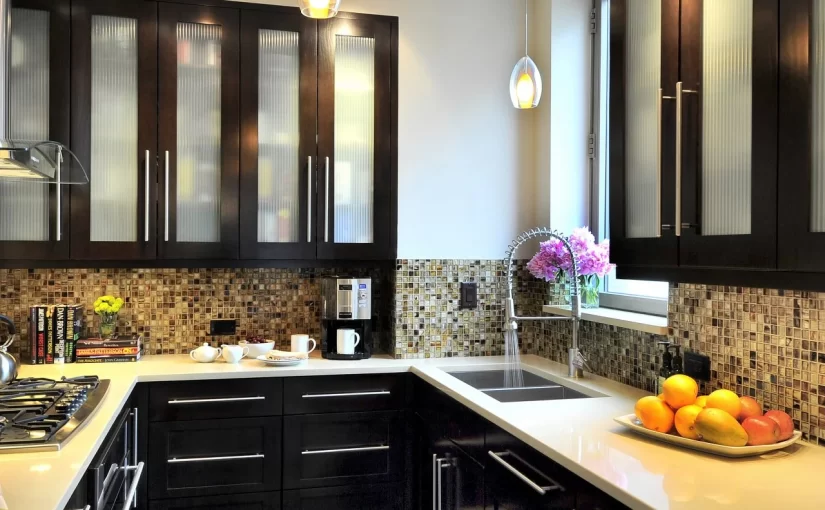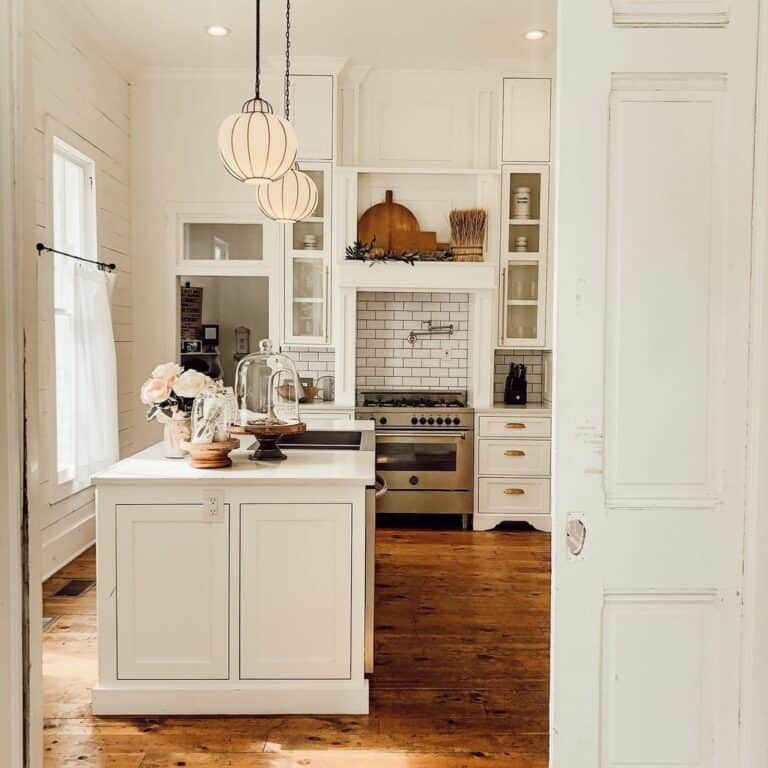Introduction
In smaller kitchen spaces, every inch matters when it comes to maximizing functionality and aesthetics. One key aspect of creating an inviting and practical kitchen is proper lighting. Recessed lighting, also known as can lights, offers a sleek and modern solution for lighting up small kitchen spaces. In this article, we will explore the benefits of recessed lighting in small kitchens and how it can be used to enhance the overall look and feel of the space.
Part 1: Creating a Spacious Feel
Level 1: Recessed lighting is an excellent way to create the illusion of a larger kitchen space. Instead of relying on bulky lighting fixtures that take up valuable overhead space, recessed lighting is installed into the ceiling. Effectively opening up the kitchen area.
Level 2: By distributing light evenly and without the need for protruding fixtures, recessed lighting gives the impression of a more spacious and airy kitchen. This type of lighting can make a small kitchen feel brighter and more open. And contributing to a more inviting and comfortable environment.
Part 2: Versatility in Design
Level 1: Recessed lighting comes in a variety of designs and finishes to complement different kitchen styles. From modern and sleek to traditional and classic, there are recessed lighting options to suit every small kitchen design aesthetic.
Level 2: The versatility of recessed lighting allows for creative placement options. It can be strategically installed over key areas such as the sink, stove, or countertops to provide focused task lighting. And it can be used to accentuate architectural features or artwork within the space.
Part 3: Task Lighting Efficiency
Level 1: In small kitchens, it is essential to have effective task lighting to illuminate work surfaces for food preparation, cooking, and cleaning. Recessed lighting can be strategically positioned to provide targeted illumination where it is needed most.
Level 2: By eliminating shadows and dark corners, recessed lighting enhances visibility and improves the functionality of the kitchen workspace. This makes it easier and more enjoyable to cook and work in the kitchen, ultimately increasing productivity and efficiency.
Part 4: Ambient Lighting for Atmosphere
Level 1: Beyond task lighting, recessed lighting can also contribute to the overall ambiance of the kitchen. With the ability to be dimmed or adjusted, recessed lights can create different moods and atmospheres to suit various occasions and activities.
Level 2: Whether you’re entertaining guests or enjoying a cozy dinner at home, recessed lighting offers the flexibility to set the right mood. It can be used to create a warm and inviting glow that enhances the comfort and hospitality of the kitchen environment.
Part 5: Energy Efficiency and Cost Savings
Level 1: Recessed LED lighting options are highly energy-efficient and long-lasting, making them a practical choice for small kitchens. LED lights consume less electricity and have a longer lifespan compared to traditional lighting options. Resulting in reduced energy costs and maintenance.
Level 2: By investing in recessed LED lighting, homeowners can enjoy cost savings in the long run while also reducing their environmental footprint. This makes recessed lighting a sustainable and economical choice for illuminating small kitchen spaces.
Part 6: Choosing the Right Trim for Recessed Lighting in a Small Kitchen
When it comes to recessed lighting in a small kitchen, choosing the right trim is crucial to achieving the desired look and functionality. There are several options to consider, including open, baffle, reflector, and adjustable trims. Open trims allow the most light to escape and are ideal for general lighting. Baffle trims have ribbed interiors that reduce glare and are great for task lighting. Reflector trims maximize the amount of light and are perfect for accent lighting. Adjustable trims can be tilted to direct light where it’s needed most. For a small kitchen, it’s important to balance aesthetics with functionality. Consider the overall style of the kitchen and the specific lighting needs when selecting the trim for your recessed lighting.
Part 7: Installation Tips for Recessed Lighting in a Small Kitchen
Installing recessed lighting in a small kitchen requires careful planning and attention to detail. Start by determining the layout of the lights, taking into account the location of cabinets, appliances, and other fixtures. It’s important to ensure that the lights are evenly spaced and positioned to provide adequate illumination throughout the space. Once the layout is determined, choose the appropriate size and type of fixtures for the kitchen. Consider using smaller, low-profile fixtures to minimize visual clutter and maximize space. When it comes to wiring, it’s crucial to follow local building codes and safety regulations. If you’re not comfortable working with electrical wiring, it’s best to hire a professional electrician to handle the installation. Finally, consider the use of dimmer switches to have greater control over the lighting and create a more ambient atmosphere in the small kitchen.
Part 8: Maximizing the Benefits of Recessed Lighting in a Small Kitchen
In a small kitchen, recessed lighting can offer numerous benefits, from creating a bright and welcoming atmosphere to maximizing space and functionality. To fully maximize the benefits of recessed lighting, consider layering the lighting with other sources, such as under cabinet lighting or pendant lights. This will allow for different lighting options to suit various activities and moods in the kitchen. Additionally, choose LED bulbs for recessed lighting to save energy and reduce costs in the long run. Using a combination of task, ambient, and accent lighting will help to create a well-lit and visually appealing space in a small kitchen. Finally, don’t forget to regularly clean and maintain the recessed lighting fixtures to ensure they continue to function optimally and enhance the overall look and feel of the kitchen.
Part 9: Types of Recessed Lighting for Small Kitchens
When it comes to choosing recessed lighting for a small kitchen, there are several types to consider. Each type has its own unique features and benefits. So it’s important to consider the specific needs of your kitchen before making a decision.
One popular type of recessed lighting for small kitchens is the “eyeball” light. These lights are adjustable, allowing you to direct the light where it’s needed most. This can be particularly useful in a small kitchen, where every inch of space is valuable. By angling the light towards key areas such as the countertop or stove, you can ensure that the space is well-lit and functional.
Another option to consider is the “wall wash” light. This type of recessed lighting is designed to evenly distribute light across a large area, making it ideal for small kitchens with limited ceiling space. By washing the walls with light, this type of fixture can help to create a sense of openness and brightness in a small kitchen. Making it feel larger and more inviting.
Conclusion
The “directional” recessed lights are a great choice for small kitchens that require focused lighting in specific areas. These lights can be installed in key locations such as above the sink, stove, or kitchen island. Providing targeted illumination where it’s needed most. By using directional lights strategically, you can create a well-lit and efficient small kitchen that meets your specific needs.
Recessed lighting offers a multitude of benefits for small kitchens, from creating a spacious feel to providing efficient task lighting and enhancing the overall ambiance. With its versatility in design and energy-efficient options, it is a practical and stylish choice for illuminating compact kitchen spaces. Whether you’re looking to maximize space, improve functionality, or simply enhance the aesthetic appeal of your small kitchen. The recessed lighting may be the perfect solution for your lighting needs.



